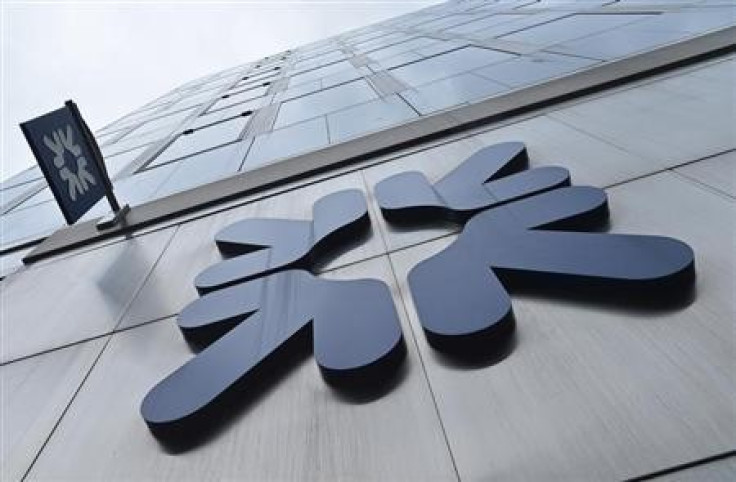RBS Hit With $100m Fine for Violating US Iran Sanctions

A collection of US regulators fined the Royal Bank of Scotland for $100m after the bank violated US sanctions with Iran.
According to a RBS statement, released after trading hours, the Board of Governors of the Federal Reserve System (Fed), the New York State Department of Financial Services (DFS), and the Office of Foreign Assets Control (OFAC) slammed the embattled lender with the fine in regards to it's historical compliance with US economic sanction regulations outside the United States.
RBS will pay $50m (£30.5m, €36.3m) to the Fed, of which $33m is "deemed to satisfy the OFAC penalty", and $50m to DFS. This has been fully provisioned.
The bank says this settlement has been "fully provisioned" in its results and that it has "cooperated fully with the US Authorities and acknowledges and deeply regrets these failings."
The settlement arises from an investigation initiated by RBS in 2010 into its historical US dollar payment practices and controls in the UK.
This review was shared with the relevant US Authorities in 2010 and has been disclosed in regulatory filings since.
"The US Department of Justice and the District Attorney of New York have concluded their parallel criminal investigations and are not taking action against RBS," said the bank.
RBS added that it has committed £300m since 2010 to strengthen its controls and since 2009 it has installed a number of more robust procedures.
These include hiring 730 employees since June 2011 to a total of 1,700 to enhance its Anti-Money Laundering and Sanctions Compliance function as well as instituting compulsory annual sanctions compliance training for all 120,300 employees globally.
Banks Breaking Sanctions
In August last year, Standard Chartered's shares plunged to their lowest level in four years when New York state authorities threatened to remove the bank's US licence, accusing it of "acting as a rogue institution" in its dealings with Iran.
Two weeks after this, Standard Chartered paid a civil penalty of $340m to the DFS, in order to settle the regulator's charges.
Then, in December, the bank paid a $100m fine to the Fed and $227m to the DFS for the same reasons as the DFS.
Standard Chartered was also ordered to install a money-laundering risk controls monitor team for a term of at least two years and who will also have to report directly to DFS.
In December last year, HSBC was fined a record $1.9bn by US prosecutors for failing to enforce rules designed to prevent the laundering of criminal cash.
The DoJ charged the bank with failing to maintain an effective program against money laundering and conduct due diligence on certain accounts.
In documents filed in federal court in Brooklyn, it also charged the bank with violating sanctions laws by doing business with Iran, Libya, Sudan, Burma and Cuba.
HSBC admitted to a breakdown of controls and apologised for its conduct.
RBS's Raft of Problems
On 11 December, RBS revealed that its finance director Nathan Bostock has resigned, after just 10 weeks into the job, to join Spanish group Santander.
The European Commission fined RBS along with seven other banks a combined total of €1.71bn (£1.4bn, $2.4bn) for operating in two cartels in the euro and Japanese yen interest rate derivatives markets.
RBS alone was slapped with €391m in fines for its bankers' roles in the cartels.
It follows a £390m fine settlement for Libor fixing from UK and US regulators in February, as well as millions more in fines and litigation costs for the mis-selling of derivatives to small businesses and Payment Protection Insurance (PPI) to consumers.
Meanwhile, the Serious Fraud Office may be laying the ground work for a criminal investigation into the RBS after a government adviser claimed the bank engineered businesses into default while profiting from their struggles.
RBS's CEO Ross McEwan denied the bank had committed any wrongdoing but drafted in magic circle law firm Clifford Chance to conduct an 'independent internal review' to look into Lawrence Tomlinson's allegations.
Only a few days after this issue, RBS revealed that it will compensate customers who were affected by the mass outage to its online and phone banking services, which potentially left millions of people unable to purchase goods or receive payments, echoing the debacle in 2012.
Only a couple of days after this statement, RBS's Natwest banking systems were hit again but this time by a distributed denial of service attack (DDoS).
A DDoS attack seeks to disrupt websites and other computer systems by flooding the targeted organisations' networks with computer traffic.
© Copyright IBTimes 2024. All rights reserved.









